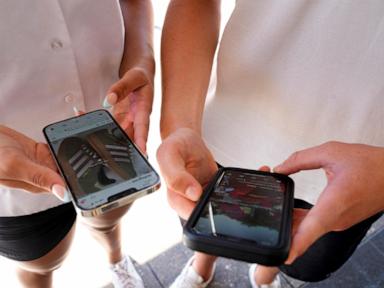ARTICLE AD BOX
A YOUNG woman living among the “smallest community in the world” says her remote island home is a slice of paradise.
Unique and quiet, the island of Pitcairn also offers free land and residency permits to migrants looking to join its population of 50.
 Getty
Getty Alamy
Alamy TikToker and Pitcairn resident Torika is an eighth-generation descendant of English mutineer Fletcher ChristianTikTok
TikToker and Pitcairn resident Torika is an eighth-generation descendant of English mutineer Fletcher ChristianTikTokTorika Christian, 21, lives on the two-mile-long and one-mile-wide island and spends much of her time fishing, diving, and hanging out with her fellow residents.
She told DailyMail there are no negatives to her small-island life, except she sometimes wished she had access to a nail technician or hair salon “as every girl loves a bit of glam”.
And yet Pitcairn locals are struggling to recruit new settlers, with only one application to move to the island received by 2015 despite the government’s continued offering of free plots.
Jacqui Christian, who grew up on Pitcairn, told the Telegraph at the time: “We’ve been appealing for more people to boost the population. We’ve had many enquiries but only one person has applied to move to Pitcairn.
“The reality is that we don’t really have any jobs to offer. Islanders used to sell stamps to raise funds but, of course, stamp collecting is not as popular as it once was.”
TikToker Torika described the remote island in the southern Pacific Ocean as a “unique” place to live with “probably the smallest community in the world, so you know everyone in and out”.
Of her daily life there, she said: “If I wake up in the morning and the weather is good I can go fishing. If it is raining, I can go gardening or just stay home. Work life here is very flexible.”
There is no proper harbour or airstrip, meaning access to the outside world is solely dependent on two tough steel vessels which ferry people and cargo to and from ships offshore.
The island was settled by the HMS Bounty mutineers in 1790 and proved to be an ideal haven for them as it was uninhabited and virtually inaccessible with plenty of food, water, and fertile land.
It is now the UK’s only overseas territory in the region.
Young Torika is an eighth-generation descendant of the English sailor Fletcher Christian who seized command of the Royal Navy vessel HMS Bounty and led nine Englishmen and 18 native Tahitian men and women to the island.
Jacqui is a seventh-generation descendant of the same man; many of the other island inhabitants are also related to the mutinous sailors.
Torika said you “definitely have to be comfortable with isolation” if you’re thinking about relocating to Pitcairn, explaining: “Growing up here on the island, the isolation was something that I never really took notice of until I spent my high school years in New Zealand.
“In New Zealand, I discovered that there is a way out whenever you like. You could jump on a plane to Australia, America, or wherever you wanted to.”
After spending five years attending school in New Zealand and starting a nursing course, Torika returned to the island. She cited feelings of homesickness as the reason for her return.
She now helps run her family business Pitkern Islen Enterprises, which sells handmade wood carvings and miniature ships online, and also works part-time for the government and off-loading cargo ships.
Though her income is enough to pay her bills, she said “on a good day we would rather enjoy our home and the nature god blessed us with”.
The 21-year-old said she and her fellow residents use a supply ship that runs between Pitcairn and the Gambier Islands every week.
She added: “This arrives on a Thursday and departs on a Sunday taking tourists and locals.
“The return cost for tourists is NZ$5,500 (£2,700). If you don’t catch that Sunday ship then you have to wait another week.
“However, sometimes the wait can be up to five weeks as the same ship sails to New Zealand about every three months to bring mail, food supplies, medical supplies, and general cargo.”
Some supplies, including warehouse parts and frozen food, can be purchased on the island at a small general store – or locals and visitors can fish for their dinner in the waters around Pitcairn.
Other local facilities include an old prison which has been turned into a tourism office, library, and gym, as well as a medical centre with a dental room, a small ward, and an X-ray machine. Islanders typically go to Tahiti when they’re in need of greater attention.
The only school on the island is said to be closed as the two children who were living locally are now being tutored overseas.
Torika said Pitcairn desperately needed more residents for it to survive, musing: “But we need willing, community-friendly people. Not people who want to come here and just isolate themselves from the community and be alone.
“For someone moving to Pitcairn, you have to be comfortable with a small community, the fact that someone knows where you’re going all the time just by the sound of your quad is the reality of a small island community – that could be looked on as a bad thing but its really something that I don’t notice.
“Living here also gives you a real sense of independence. On Pitcairn you are everything: the plumber, the electrician, the mechanic, the builder.”
She added that Pitcairn people are also “very hospitable” and willing to lend a hand where they can.
 Torika helps run her family business on the islandTikTok
Torika helps run her family business on the islandTikTok Alamy
Alamy Alamy
Alamy Alamy
Alamy.png)
 10 months ago
6
10 months ago
6








 English (US)
English (US)